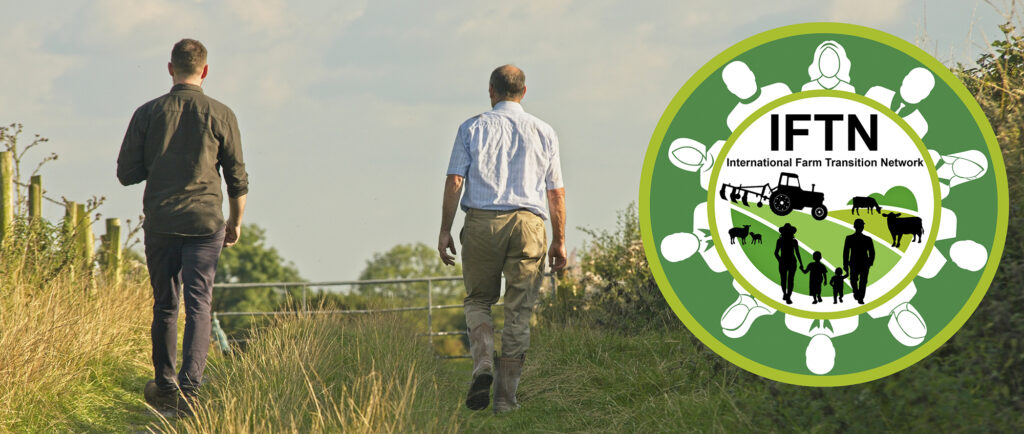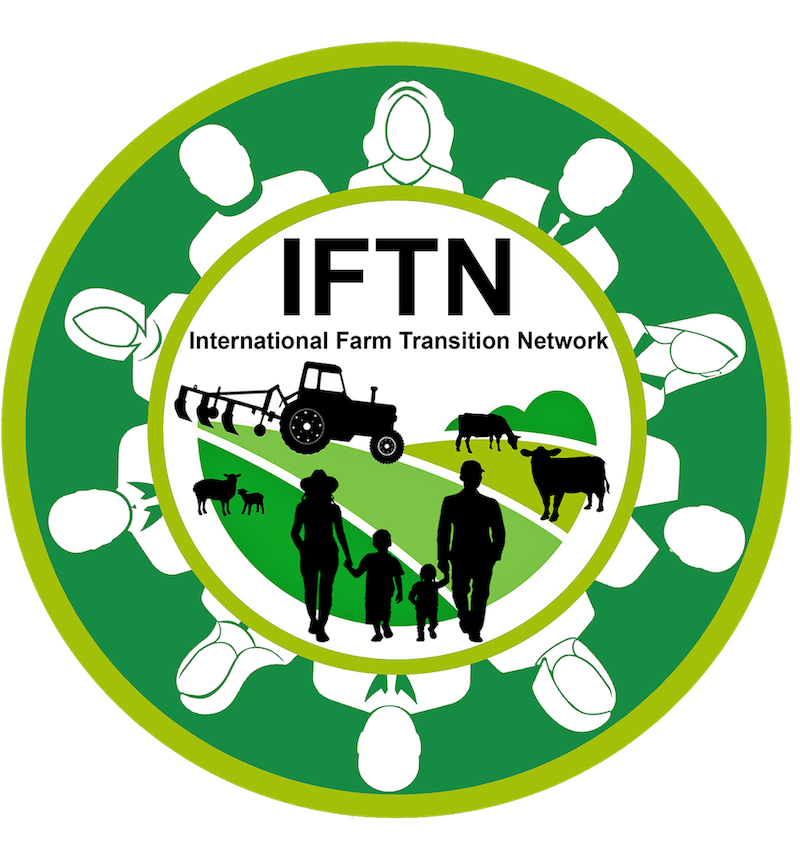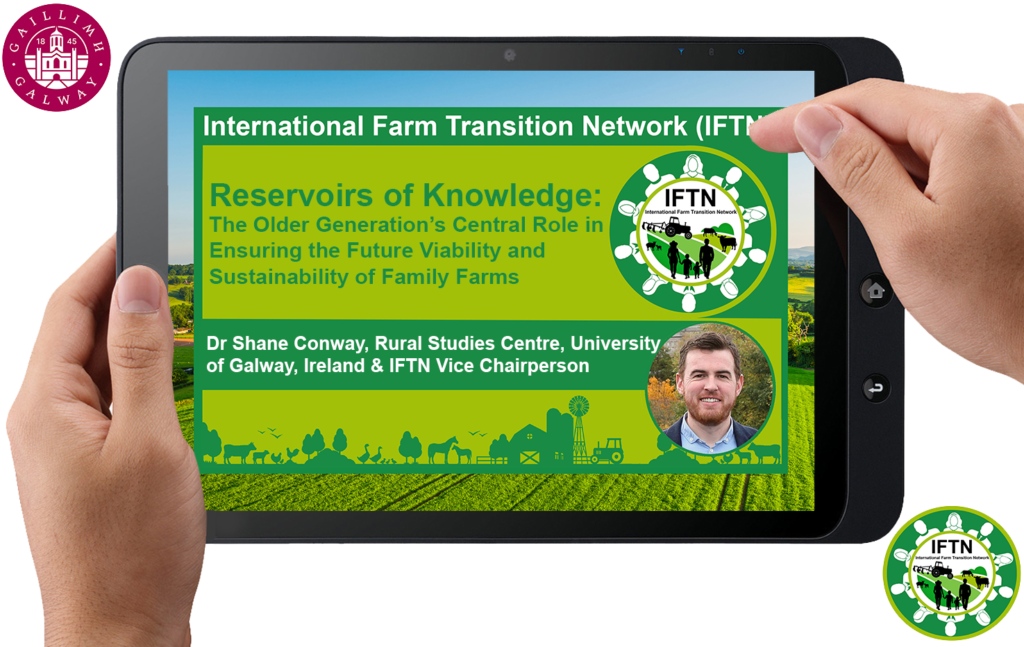Reservoirs of Knowledge: The Older Generation’s Central Role in Ensuring the Future Viability and Sustainability of Family Farms
By Dr. Shane Conway
Rural Studies Centre, National University of Galway, Ireland & IFTN Vice Chairperson
Feb. 20, 2024
Globally, policy aimed at stimulating intergenerational family farm transition pays limited regard to older farmers’ central position in the farming community, overlooking their identity and social circles in later life, in particular, which are inextricably intertwined with their occupation and farm. Furthermore retirements in farming to facilitate generational renewal can create critical shortages of experienced personnel in the sector, which in turn can have negative effects on farm performance, if not addressed appropriately. Older farmers hold an invaluable store of locally specific tacit and lay knowledge developed over years of regularised interaction and experience working on their family farms, that the younger generation have not yet accumulated. As such ‘soil-specific’ human capital is not easily transferable, communicated or learnable, the family farm is at risk of being left in the hands of a young, inexperienced farmer, unable to make competent management decisions without the continued guidance and advice of the older generation. This is an important consideration because a farm is not just a piece of land or a workplace, but rather represents the physical manifestation of generations of knowledge; knowledge developed and used over time, by both the farmer themselves and those who have lived and worked there before.
So what is required to effect change moving forward? As every farmer and each family situation is unique, I acknowledge that that there are no uniform or easily prescribed solutions to solving this complex challenge. My research on the psychodynamic and sociodynamic issues affecting farm succession and retirement in later life, however, advocates that instead of reporting that farm management decisions are in the hands of a generation who may be more resistant to structural change and growth, policy makers and key stakeholders must embrace, publicly promote and recognise the older generation of the farming community’s knowledge and expertise in order to maintain peak efficiency on farms, whilst simultaneously encouraging generational renewal in the sector. For example, on its own, and with the numerous perceived negative connotations associated with the concept of retirement in the farming community identified in my research over the past 11 years, the term ‘Retirement Scheme’ is no longer appropriate for policy to use in a farming context. I recommend that the term ‘Farm Progression Scheme’, for example, would be much more effective as it portrays a sense of purposefulness rather than one of cessation to an older farmer, thereby encouraging the senior generation to approach the transition with greater enthusiasm and acceptance. Furthermore, the feeling of still being valued and needed in society in later life may reinforce the older farmers’ morale and sense of purpose in the face of the gradual diminishment of their physical capacities, and offers possibilities for a positive form of ageing experience. The development of such an appropriate concept of retirement for agriculture, rather than the adoption of what prevails in other sectors of the economy is a task to which policy can help to diminish the stigma and defeatist stereotype associated with intergenerational farm transfer and subsequently promote a more positive and wilful attitude towards the process over time by easing the stresses of the process.

Shane and Liam Conway, Sheep and Cattle Farmers on the Family farm in Caltra, Co Galway. Photograph by David Ruffles
It is important to note, however, that whilst the older generation can continue to make a useful contribution to the family farm business, they must do so in a constructive manner by not only delegating sufficient managerial responsibilities and sufficient resources to the younger generation, but also by not interfering in a negative way with their aspirations and goals for the future of the farm by continually reasserting their control. If this is not the case, the older generation runs the risk of not having a successor at all as their children, for example, may eventually lose interest and motivation continually working in their elder’s shadow and subsequently go on a ‘professional detour’ in search of alternative employment elsewhere in order to achieve their career ambitions and personal development, resulting in potentially good young farmers being lost to the agricultural sector. My colleague on the IFTN board Joy Kirkpatrick, Farm Succession Outreach Specialist at University of Wisconsin-Madison Division of Extension previously noted that ‘farm operations that would be considered financially sound, well-managed businesses can slowly collapse and fail because the older generation is unable or unwilling to face the contradicting desires of seeing the next generation succeed yet retain the independence and self-identity farming provides’. With that in mind, I advocate that the services of a certified IFTN Farm Succession Coordinator, is essential; particularly when facilitating discussions between old and young family members’ objectives, goals and expectations for the farm.
In conclusion, as the older generation are more often than not the ones who decide whether intergenerational farm transfer happens or not during their lifetime, the active advisory role ideology and discourse recommended in this article, where their lifelong experience and knowledge is recognised and valued, can help protect the senior generation’s sense of purpose and wellbeing in later life whilst simultaneously encouraging them to share managerial and ownership rights of the farm to the next generation in a timely manner in order to ensure their continued interest and involvement in the family farm business into the future. The services provided by a certified IFTN Farm Succession Coordinator can help guide and support both generations through the steps of the family farm succession planning process in an unbiased manner, directing them to the resources and strategies they need to achieve their shared vision and unique needs for continuing the farm operation into the future.
Author Biography
Dr Shane Conway is Project Manager and Lecturer in the Rural Studies Centre at the University of Galway. Shane specializes in agricultural and rural social science, with a particular focus on the human side of farming, older farmers and intergenerational farm transfer. He has published widely on these topics and is also Co-Director of the International FARMTRANSFERS Project and Vice Chair of the International Farm Transition Network (IFTN) Board of Directors. Most recently, Dr Conway established a national social initiative to enhance the social wellbeing of older farmers in Ireland called ‘Farmer’s Yards’. Shane is also a farmer, breeding pedigree Charollais Sheep on his family farm in County Galway, in the west of Ireland.
Twitter/X: @DrShaneConway

